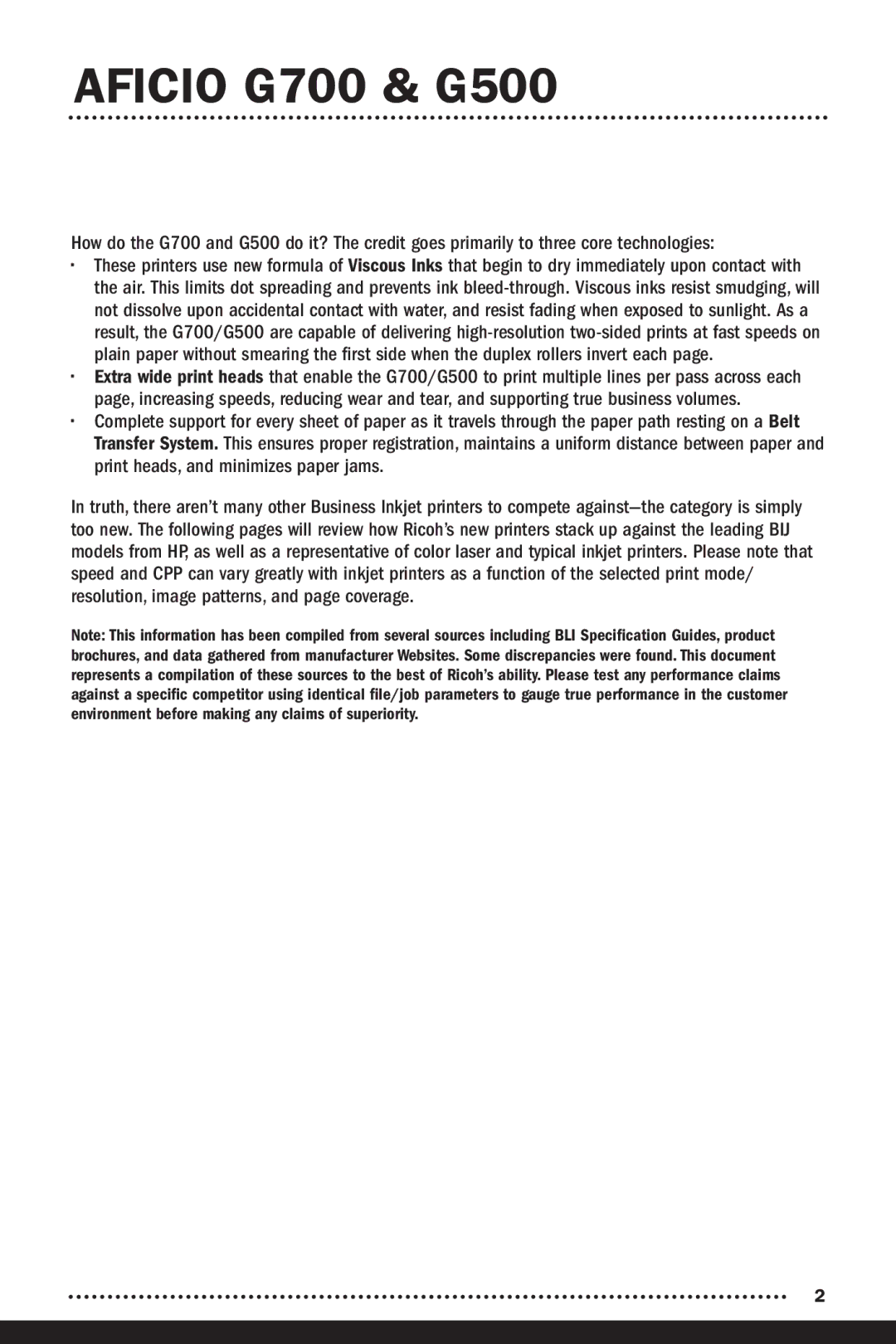
AFICIO G700 & G500
How do the G700 and G500 do it? The credit goes primarily to three core technologies:
•These printers use new formula of Viscous Inks that begin to dry immediately upon contact with the air. This limits dot spreading and prevents ink
•Extra wide print heads that enable the G700/G500 to print multiple lines per pass across each page, increasing speeds, reducing wear and tear, and supporting true business volumes.
•Complete support for every sheet of paper as it travels through the paper path resting on a Belt Transfer System. This ensures proper registration, maintains a uniform distance between paper and print heads, and minimizes paper jams.
In truth, there aren’t many other Business Inkjet printers to compete
Note: This information has been compiled from several sources including BLI Specification Guides, product brochures, and data gathered from manufacturer Websites. Some discrepancies were found. This document represents a compilation of these sources to the best of Ricoh’s ability. Please test any performance claims against a specific competitor using identical file/job parameters to gauge true performance in the customer environment before making any claims of superiority.
2
